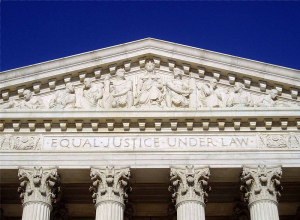People Who Have Shaped the Teaching Careers of Our Faculty—Part 2
 The editors of the blog asked several law school faculty to write about the people who have been the most formative figures in their careers as legal educators. This is the second submission in the series, and it is by Professor John J. Kircher.
The editors of the blog asked several law school faculty to write about the people who have been the most formative figures in their careers as legal educators. This is the second submission in the series, and it is by Professor John J. Kircher.
The answer to the question “who has been the most formative figure in your career as a legal educator” is very easy for me. It is one name, Professor James D. Ghiardi. During the course of my career Jim Ghiardi has been my law professor, my boss, my mentor, my golf partner, my colleague, my coauthor and my second father. I feel very fortunate to have had the ability of spending a great deal of time with him over the course of my career. Many learning experiences came from that, not only observing what he said, but also what he did.
My initial exposure to the man was in my first year of law school. He was my Torts professor. There was no attorney in my family and, other than characters in movies and on television, I never had any personal exposure to one. I was impressed. He was dressed in a business suit, unlike many undergraduate faculty members to whom I had been exposed. They dressed like their students, possibly thinking that undergraduate chic might make them appear young – certainly not professional. Jim told us that law was a profession and that he expected us to act and think like professionals. He told us what his role would be in the classroom and what our role should be.
A significant sign of Jim’s professionalism is evidenced by the fact that he was elected by the members of the State Bar of Wisconsin to be President of that organization. As far as I can discern he is the only “academic lawyer” to have achieved that status. However he was more than an academic lawyer. He was and continues to be a true professional. He certainly was and continues to be my role model.

